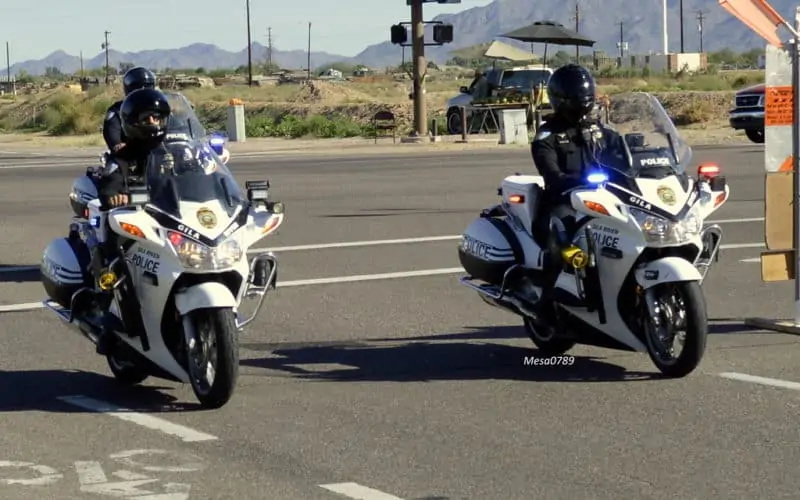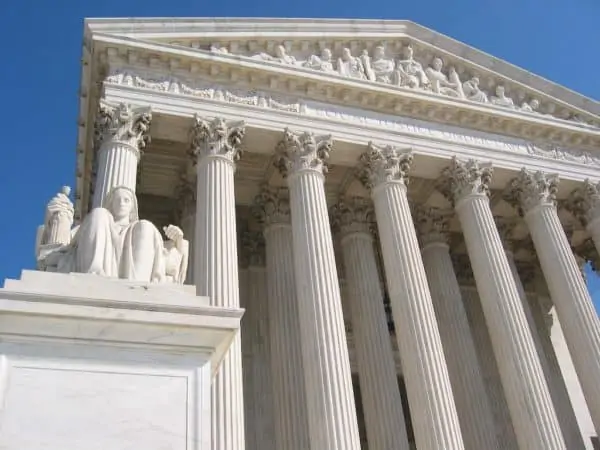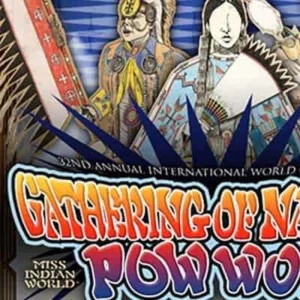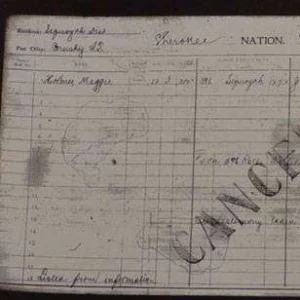Native Americans are saying that the ruling to now allow Native police officers to detain non-Native individuals on their land, is just not enough.
Why? Because they still cannot make arrests.
Jerome Lucero, the Zia Pueblo governor in New Mexico, is a police officer on Native land and frequently encounters illegal activity and situations that would traditionally lead to an arrest.
Lucero gave an example in an interview with NPR.
He stated that a man was driving 40 miles under the speed limit, which seemed very suspicious and is actually quite dangerous. Even when approaching the vehicle with sirens, it took a while for the driver to comprehend and stop his vehicle.
The driver’s pupils were restricted, which is a sign of drug use, and Lucero noticed the driver had heroin and syringes lying about. The driver believed he was still in Albuquerque and was so high he did not realize where he was.
Typically, this case would be cause for arrest—but not in this instance.
Because tribal law enforcement lacks the jurisdiction to arrest, charge, and prosecute non-Native people on their land, this type of situation is not uncommon for Lucero. Unfortunately, this is something Native officers have had to fight since a 1978 Supreme Court ruling stripped away tribes’ criminal jurisdiction over non-Natives.
Lucero says that when he pulls someone over or notices a crime going on, he must take into consideration whether or not he thinks the individual is Native or not. If he isn't, there's not much he can do.
What is being done about this?
Last week in United States v. Cooley, the U.S. The Supreme Court unanimously upheld tribal officers' authority to at least investigate and detain non-Native people they suspect of committing crimes on reservations while waiting for backup from non-tribal law enforcement (NPR).
Lucero and other tribal officers don’t believe this ruling will be enough to make a difference. He says that when he contacts the county’s sheriff’s office, they often say they are too busy to help him make an arrest, even when there's illegal activity. Oftentimes, Lucero will wait around with the detained individual for hours before he must let them go.
While tribal officers still cannot arrest non-Natives within their jurisdiction, this Supreme Court ruling is a step toward achieving the ultimate goal of allowing arrests.
“In that oral argument [United States v. Cooley], and in that unanimous opinion, I hear a court that's very concerned about the public safety questions—about the serial killer on the highway that can't be pulled over, and the drunk drivers getting back on the road,” Elizabeth Reese, a Native woman and assistant professor at Stanford Law School, says.
Despite his frustration, Lucero still has hope for the future.
“We don't have jurisdiction [over non-Natives] here on our reservation, but when us Native Americans get off the reservation, they have full jurisdiction over us,” he told NPR. “So what's the difference? It makes my heart sad to see that happening to us Native Americans.”
It may be years until the Supreme Court rules in favor of non-Native arrests on tribal land. But until then, people like Lucero and Reece will continue to advocate for a more fitting jurisdictional ruling and help bring awareness to the issue.





james
says:This atrocious of course. This nation does not want our laws enforcement officer to be able to do anything, anywhere. I am surprised they let you do this.
Joseph M Costa
says:The Native Americans have the right to decide who breaks the law on their land. None Native police need to stay off Native lands and there will be no problem.
Lee Carrington
says:This is an atrocious situation. The First People should have jurisdiction over anyone breaking the law on Their land! There are too many racist people in charge of Natve Americans’ lives and lands.